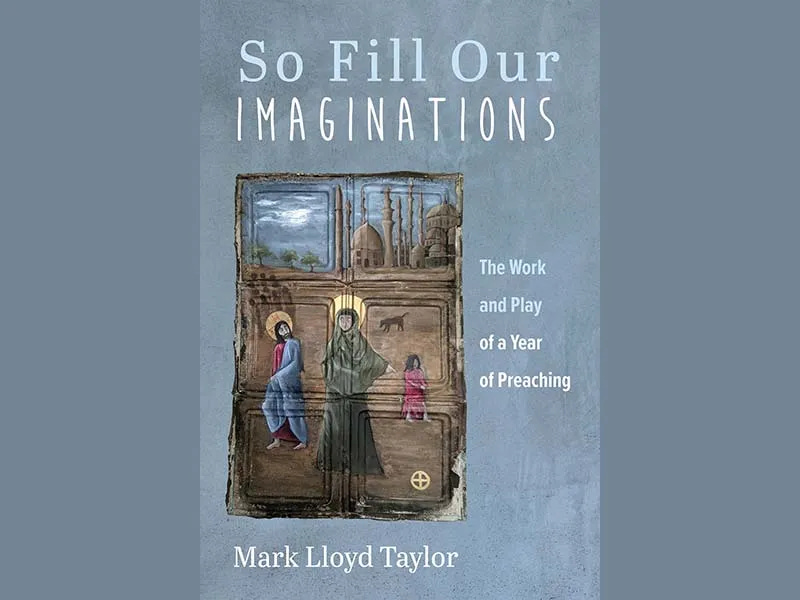So Fill Our Imaginations Book Review
Note: I am part of SpeakEasy, which means I received a free epub version of this book, in exchange for my candid review.
I am a bit of a nerd. I absolutely love reading sermons. I know sermons are meant to be audibly listened to, but I prefer reading the sermon. I also love learning about an individual preacher’s thought process when composing a sermon. As a result, So Fill Our Imaginations: The Work and Play of a Year of Preaching. Is my type of book. Mark Lloyd Taylor has a PhD in Systematic Theology and is Professor Emeritus at Seattle University. He serves in numerous roles at St. Paul’s Episcopal Church (Seattle, WA,) including Associate for Liturgy and as a Godly Play teacher. He is a licensed lay preacher in the Diocese of Olympia.
So Fill Our Imaginations is comprised of twelve sermons Taylor gave throughout the 2016-2017 year. A year marked by the regular rhymes and rhythms of the liturgical season on the one hand, and the rise of a Trump presidency, continued reckoning with white supremacy, ISIS and wars in the Middle East, and other forms of social and political turmoil, on the other.
This book demonstrates how Loyld dealt with the difficult task of preaching during a year marked by various major national and world events. The preacher needs to be aware that preaching is not divorced from the congregation’s larger socio-political context and they need to find ways to communicate the gospel in a way that is both relevant to that context, that doesn’t downplay the painful reality of what is going on, and yet that doesn’t invoke despair and hopelessness.
I’ve personally listened to sermons where the preacher either ignores the larger political context for weeks on end rendering the gospel almost irrelevant to the larger world or, on the opposite extreme, the sermons are so hyper-focused on how horrific the world is, that the gospel becomes a hammer hitting the congregation repeatedly over the head and a source of despair rather than hope.
Additionally, the preacher also has to incorporate the regular joys and pains of congregational life: members dying and the grief that follows, ministries and congregation members becoming sick or injured, weddings, and new programs being implemented. Plus, in liturgical traditions in which there is a set reading, the preacher has to sometimes deal with difficult and challenging texts. The task of the preacher is not easy at the best of times. Less so in years that in retrospect are defined as history-making.
So Fill Our Imaginations does a good job of exploring how one person balances the competing expectations and needs placed on the preacher. Taylor’s sermon touches on the larger political context (understandably, some specific sermons do that more than others) and the reality of congregational life at St. Paul’s.
I enjoyed how his specific experiences impacted his preaching: he incorporated his decades as a professor and his role as Associate for Liturgy and Godly Play teacher into his sermons. Since I do not have children, I know very little about the types of resources available to help teach children about God. I found the premise of Godly Play which seeks to nurture the spiritual lives of children by harnessing their curiosity illuminating and useful for adults as well.
I also appreciated the overview of what congregational life is like at St. Paul’s as well as the brief introductions or afterward that accompanied each sermon that described his thought process, why he spoke on a particular theme, what he was trying to convey, and what he did differently.
One important aspect of the book is Taylor’s frank discussion in the epilogue about one particular sermon that could have been improved. An assessment I agree with.
(Though he named that sermon as his favorite of the twelve, for me, it was my least favorite precisely because I found some of the voices and language problematic.)
In attempting to discuss the horrific white supremacist actions in Charlottesville, VA Taylor centered on white voices and white experiences and he expressed how he now explicitly calls out white privileges. His discussion on what he wished he had done is vitally important. Preachers, as studious and as careful as they might try to be, sometimes get it wrong: the message doesn’t land how they had intended, they centered certain voices over the marginalized, or they didn’t explicitly call out harm, It is important for preachers to model acknowledging when their best intentions have fallen short and then take steps to rectify it.
All in all, I enjoyed So Fill Our Imaginations. Preachers will find it useful and perhaps learn from Taylor’s process of writing and his illustrations. It’s also for nerds like me who aren’t technically preachers (I preach very rarely) but who simply enjoy reading sermons and examining the preacher’s thought process.



